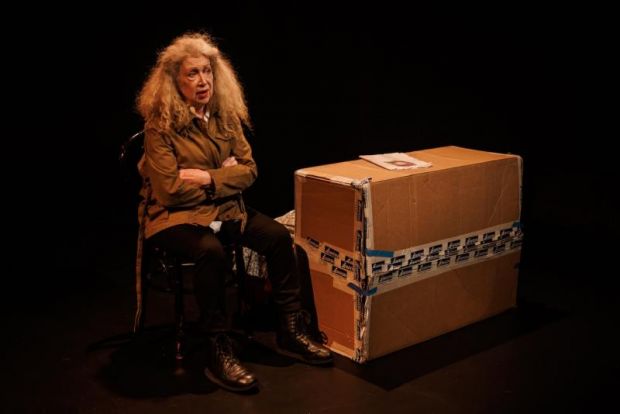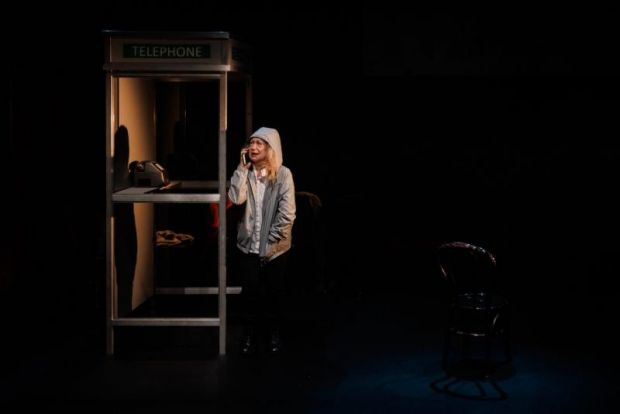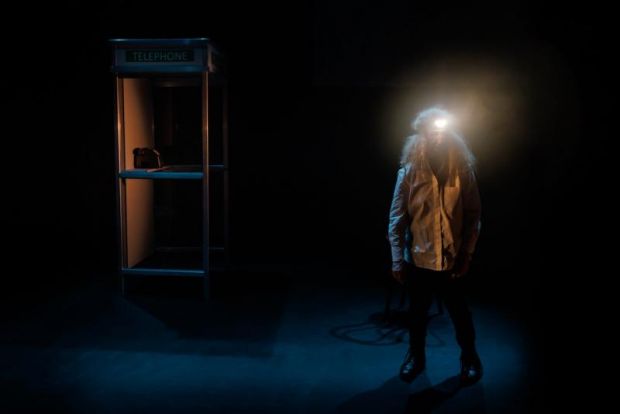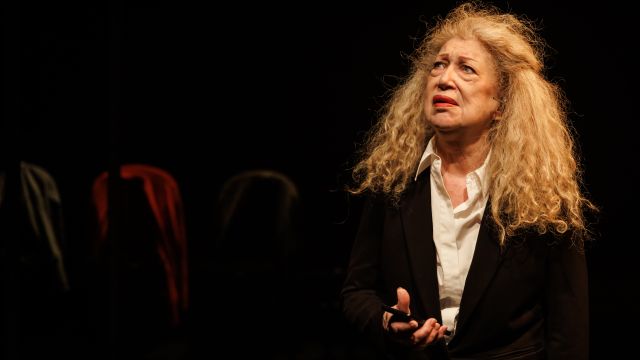Way
Way is a play driven by passion and shaped by theatrical skill honed by years of experience, a play in which Sally McKenzie plays all four of her characters. As a play, it could easily have tipped over into agit-prop or political pamphlet. It doesn’t - due to two factors that demonstrate the professionalism and ingenuity of its creator.
Sally McKenzie has a case to make about real people and a parlous situation, but she engages us by seamlessly interweaving a (fictional) personal story which has itself a rising tension as it builds toward a crisis.

Lyn (McKenzie) is a professional documentary filmmaker and teacher. She has shot hours and hours of interviews with over-55 homeless women (couch surfing, living in their cars, literally begging on the street) and assembled a rough cut. Now she is waiting on a decision from a ‘broadcaster’ on whether they will buy the film. Lyn badly needs the money to finish the film – and – quite simply – to live.
The overwhelming irony of Way is that the the catastrophes that have overtaken the characters (subjects?) in the protagonist’s documentary project, overtake the protagonist herself.
Clearly, Lyn has gone out on a limb and got this far on spec, convinced that the importance of her subject matter will be irresistible. But the broadcaster, while cagily encouraging, is delaying, sticking at Lyn’s adamant refusal to put the women’s faces on screen. ‘I don’t want to make pity porn,’ Lyn insists via phone to the executive with whom she must deal.

Nor do we see the women’s faces: we see the backs of their heads and their names projected on a large screen above the on-stage action. Their interviews and personas are ably created by McKenzie, who distinguishes them from ‘Lyn’ by different syntaxes and changes of jacket.
Meanwhile, Lyn is sliding into a financial hole herself. While waiting on the sale, her teaching hours are cut and she must make humiliating phone calls to her elderly mother, begging for yet another loan… The repeated theme and mantra here is that for women (mostly women), ‘It just takes one little thing to go wrong… ‘ And implicit in that is, ‘This could happen to you.’
The text is not without ambiguities and ironies. Is Lyn idealistic or naïve to think she would sell a ‘worthy’ documentary to a broadcaster in the current climate? Especially with her supposedly ‘arty-farty’ insistence on not showing the women’s faces? Are her teaching hours cut because of budget cuts or a lack of enrolments? Was it just ‘one little thing’ in all cases that rendered her homeless women homeless? That such questions occur to you at the time or in retrospect is indicative of the texture and intelligence of the writing, its refusal to be simplistic.

If the play does tip into agit-prop just a bit, it is via the terrible statistics that intersperse the drama, projected on that big screen. E.g., since 2018, the number of older women experiencing homelessness has increased by 31%. We know these statistics – or we could if we wanted - but they seem to stay as statistics – and we look away. Each of those statistics have stories. That woman, say, on the corner of Collins and Spencer Streets has a story - as Lyn’s women have stories.
But do not be put off by the play’s subject matter. Yes, its intention is to arouse awareness and anger, but Sally McKenzie grips the audience’s attention for a complex seventy-five minutes with an astonishing sustained theatre performance. If you love theatre, see this.
Michael Brindley
Photographer: Darren Gill
Subscribe to our E-Newsletter, buy our latest print edition or find a Performing Arts book at Book Nook.

